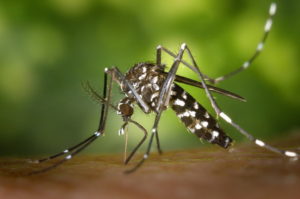S ince the World Health Organization declared the Zika virus outbreak a public health emergency, there has been a lot of international concern. This summer, Rio de Janeiro in Brazil is hosting the Summer Olympics, but unfortunately, Rio lies in a Zika virus-affected area. Some Rio officials are saying that the Zika risk at the Rio Olympics is low and “close to zero”.
ince the World Health Organization declared the Zika virus outbreak a public health emergency, there has been a lot of international concern. This summer, Rio de Janeiro in Brazil is hosting the Summer Olympics, but unfortunately, Rio lies in a Zika virus-affected area. Some Rio officials are saying that the Zika risk at the Rio Olympics is low and “close to zero”.
However, recent reports show that the estimated rate of virus infections in Rio is 157 per 100,000 people, which is more than triple the national average of Brazil. Within the first three months of this year, there were close to 26,000 reported cases of Zika in Rio.
It is understandable that both athletes participating in the Olympics, as well as journalists, are starting to back out. NBC’s Today show anchor Savannah Guthrie recently announced she will not be covering the Rio Olympics because she is pregnant. NBC will be sending 2,000 employees to cover the Olympics but stated that no one will be required to travel if they think their health could be at risk.
Cyclist Tejay van Garderen also announced he is pulling out of the games due to the fear of catching Zika and passing it to his currently pregnant wife. Aussie golfer Marc Leishman also announced he will not be competing in Rio due to fear of contracting Zika due to his immune-compromised wife.
Even though Rio de Janeiro Olympic officials are deeming the games safe, experts (who aren’t concerned about monetary loss) are worried that game officials are overlooking the risks amid fears of losing profits.
Harvard Public Health Review recently published an article that half a million visitors to Rio for the Olympics pose a risk of spreading the virus once they return to their home countries. The study’s lead author Amir Attran said, “Zika infection is more dangerous, and Brazil’s outbreak more extensive than scientists reckoned a short time ago. Which leads to a bitter truth: the 2016 Olympics and Paralympic Games must be postponed, moved, or both, as a precautionary concession.”

